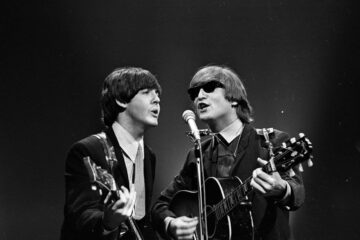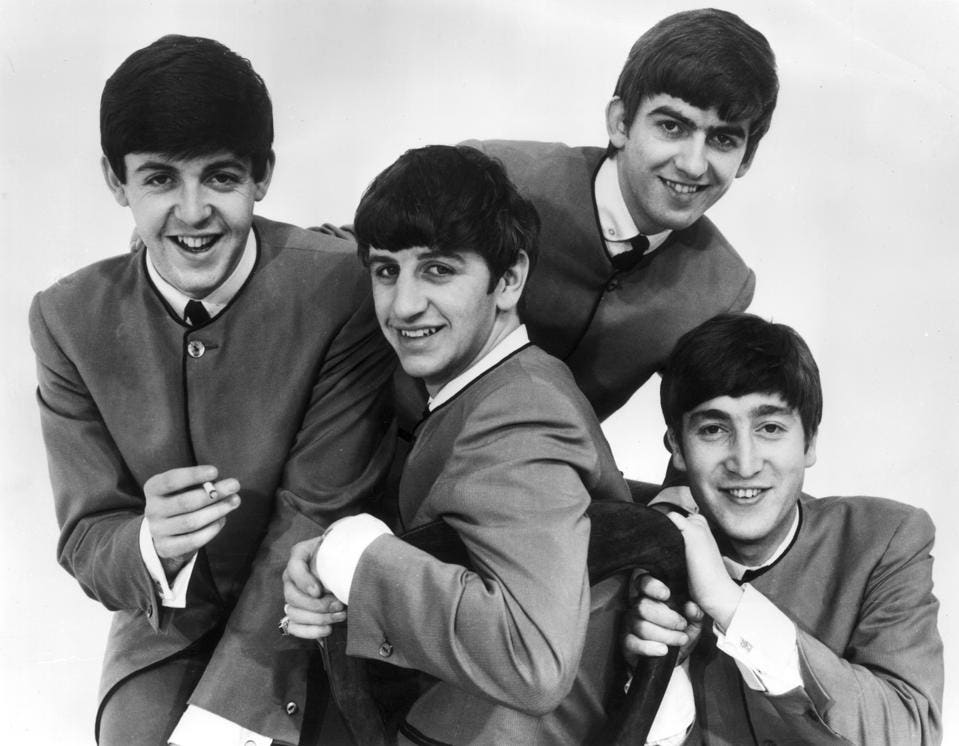The song arrived just a dozen years before the date promised in its forward-looking title. But thanks to the cleverness and talents of Paul McCartney and Wings, “Nineteen Hundred and Eighty-Five” seemed like a distant future that none of those who were living would still be around to see.
What is the song about? How did McCartney write it based on a single line? And how did he and the two remaining Wings members manage to pull together for such a dynamic song and album? Let’s look back, and then ahead (or maybe forward, and then back?) at “Nineteen Hundred and Eighty-Five.”
Wings Forges On
The story of Wings, the band that Paul McCartney formed not long after The Beatles collapsed, is one of stalled momentum and impressive resilience. Case in point: their 1973 album Band on the Run. It ended up a triumph, but only after a series of events that raised the degree of difficulty exponentially.
When first formed, Wings struggled to impress critics, but they were coming off a string of successful singles in 1972 and an album from earlier in ’73 (Red Rose Speedway) that contained their first U.S. No. 1 hit (“My Love”). But at the moment when there seemed to be no stopping them, disaster struck when two members of the band (Henry McCullough and Denny Seiwell) bailed on the project right before recording was set to start in Lagos, Nigeria.
A series of mishaps befell the remaining three members of the group (McCartney, wife Linda, and Denny Laine) once they arrived in Nigeria, not least of which was having the working tapes of the songs stolen from McCartney by knife-wielding robbers. But the trio kept their focus, and they ended up with what’s regarded as their best album. “Nineteen Hundred and Eighty-Five” plays a big part in that as the evocative closing track.
Seeing the Future
McCartney walked around with the line No one ever left alive in nineteen hundred and eighty-five in his head for a while, not knowing what kind of song he wanted to build around it. Eventually, he came to the conclusion the line belonged in a love story that would sustain through time, as he explained in his book The Lyrics: 1956 to the Present:
“The idea behind the song is that this is a relationship that was always meant to be. No one in the distant future is ever going to get my attention, because I’ve got you. But when this was written, 1985 was only 12 years away; it wasn’t the very distant future—only the future in this song. So, this is basically a love song about the future.”
In other words, the narrator in the song is speaking from an era much earlier than 1973. It’s a clever twist executed by McCartney, and it helps that the three-person band manages to conjure so much excitement. McCartney pounds away at his piano, while Laine adds stinging guitar licks. On top of that, the arrangement features some thrilling crescendos that sound like they were left over from the “Live and Let Die” single from earlier in ’73.
What is the Meaning of “Nineteen Hundred and Eighty-Five”?
McCartney lays out the premise in the opening lines of the song: No one ever left alive / In nineteen hundred and eighty-five will ever do, the narrator sings to his lover. That’s not to say that there won’t be temptations along the way to the distant future: She may be right, she may be fine / She may get love, but she won’t get mine, ‘cause I love you.
In the second verse, McCartney plays into the notion of sci-fi ever so slightly by suggesting he’s realizing a kind of prophecy, albeit a homespun one: Oh, my mama said the time would come / When I would find myself in love with you. That’s when the narrator explains the title date seemed way too far off to even contemplate: I didn’t think, I never dreamed / That I would be alive to see it all come true.
At its core, “Nineteen Hundred Eighty-Five” is a simple come-on song. But by playing with the dates a little bit, and by tasking his truncated band with an ambitious arrangement, Paul McCartney makes it sound like an epic that any sci-fi filmmaker worth their salt would love to direct.



